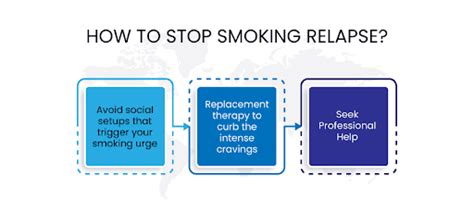Intro
Quitting smoking is one of the most significant decisions you can make to improve your health and wellbeing. Smoking is a leading cause of preventable death worldwide, accounting for more than seven million deaths each year. The good news is that it's never too late to quit, and with the right mindset and support, you can overcome the addiction and live a healthier, smoke-free life. In this article, we'll explore the importance of quitting smoking, the benefits of quitting, and provide a comprehensive guide on how to quit smoking now and forever.
The dangers of smoking are well-documented, and the risks associated with smoking are numerous. Smoking can cause a range of serious health problems, including heart disease, stroke, and various types of cancer. Additionally, smoking can also lead to respiratory problems, such as chronic obstructive pulmonary disease (COPD) and emphysema. The financial burden of smoking is also significant, with smokers spending thousands of dollars each year on cigarettes. Furthermore, smoking can also have a negative impact on your social life, relationships, and overall quality of life.
Despite the many risks associated with smoking, many people find it difficult to quit. Nicotine, the primary addictive substance in tobacco, can make quitting a challenging and frustrating process. However, with the right approach and support, you can overcome the addiction and live a smoke-free life. In recent years, there have been significant advances in smoking cessation treatments, including prescription medications, counseling, and alternative therapies. These treatments can help reduce cravings, manage withdrawal symptoms, and increase your chances of quitting successfully.
Understanding the Benefits of Quitting Smoking

Physical Benefits of Quitting Smoking
The physical benefits of quitting smoking are numerous and significant. Some of the most notable benefits include: * Improved lung function and reduced risk of respiratory problems * Reduced risk of heart disease, stroke, and other cardiovascular conditions * Lower risk of various types of cancer, including lung, throat, and mouth cancer * Improved circulation and increased oxygen levels * Healthier skin, hair, and nails * Increased energy levels and improved overall physical healthOvercoming Nicotine Addiction

Managing Withdrawal Symptoms
Withdrawal symptoms are a common challenge for many smokers trying to quit. These symptoms can include irritability, anxiety, depression, and cravings. However, with the right approach and support, you can manage withdrawal symptoms and increase your chances of quitting successfully. Some effective strategies for managing withdrawal symptoms include: * Staying hydrated and eating a healthy diet * Engaging in regular exercise and physical activity * Practicing relaxation techniques, such as deep breathing and meditation * Getting enough sleep and maintaining a regular sleep schedule * Seeking support from friends, family, and support groupsCreating a Quit Plan

Staying Motivated and Engaged
Staying motivated and engaged is crucial for quitting smoking successfully. Some effective strategies for staying motivated and engaged include: * Keeping a quit journal to track your progress and identify patterns * Rewarding yourself for small milestones and achievements * Finding healthy alternatives to smoking, such as exercise or hobbies * Staying connected with friends and family, and seeking support when needed * Celebrating your successes and acknowledging your hard work and dedicationAvoiding Relapse and Staying Smoke-Free

Maintaining a Healthy Lifestyle
Maintaining a healthy lifestyle is crucial for avoiding relapse and staying smoke-free. Some effective strategies for maintaining a healthy lifestyle include: * Eating a balanced and nutritious diet * Staying hydrated and drinking plenty of water * Engaging in regular exercise and physical activity * Getting enough sleep and maintaining a regular sleep schedule * Managing stress and anxiety, and seeking support when neededConclusion and Final Thoughts

What are the benefits of quitting smoking?
+Quitting smoking has numerous benefits, including improved lung function, reduced risk of heart disease and stroke, and lower risk of various types of cancer.
How can I overcome nicotine addiction?
+Effective strategies for overcoming nicotine addiction include prescription medications, counseling and therapy, alternative therapies, support groups, and nicotine replacement therapy (NRT).
What are some effective strategies for managing withdrawal symptoms?
+Effective strategies for managing withdrawal symptoms include staying hydrated, eating a healthy diet, engaging in regular exercise, practicing relaxation techniques, and seeking support from friends, family, and support groups.
